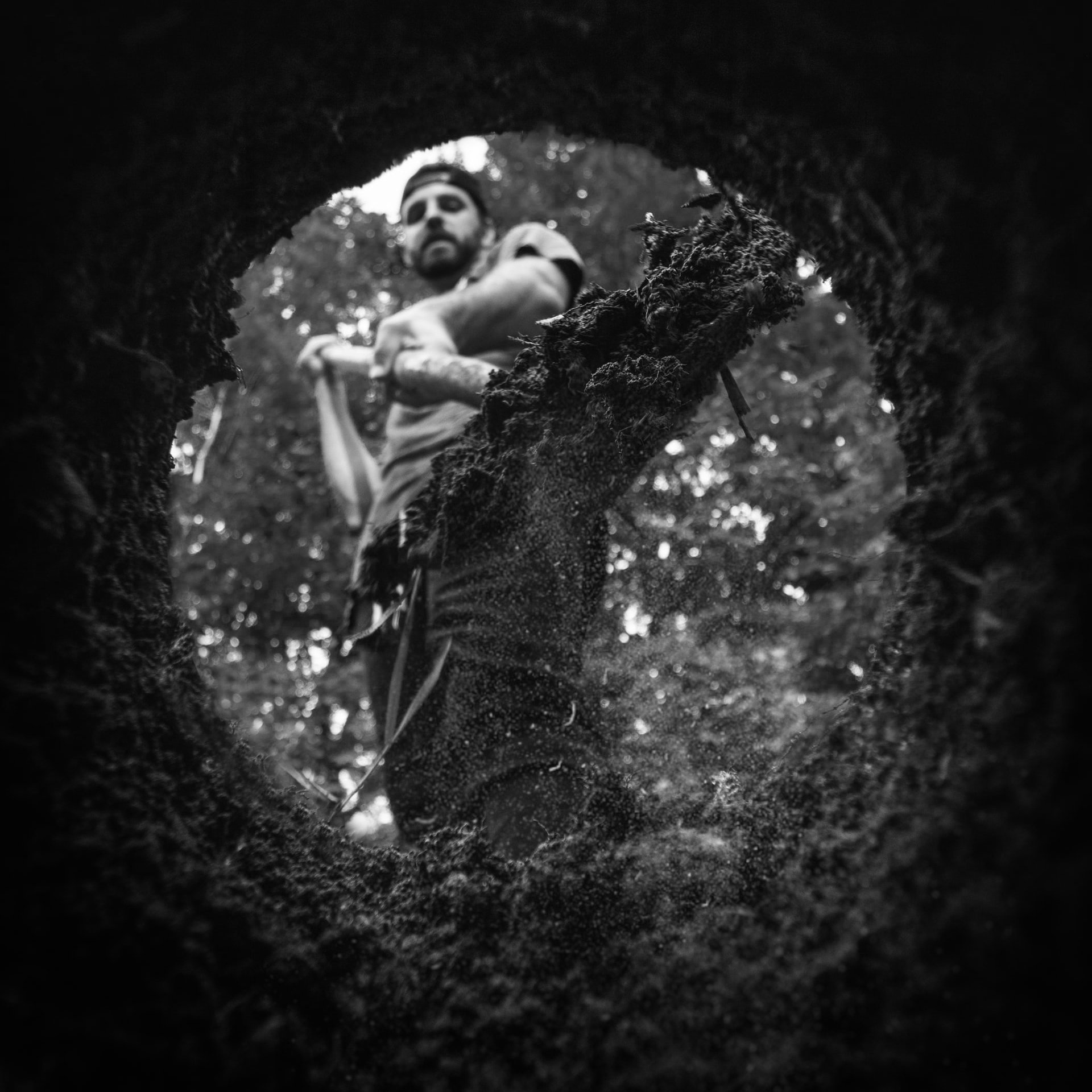

A Different Kind of Bucket List
Fifteen minute gaps can add up to a lot of time. Even if you only had one such opening per workday, they would add up to over eight full workdays over the course of a year. So how can we ensure that we put this time to good use?

Through the Father’s Eyes
As I gazed at my baby, I was flooded with love for him. Simultaneously, I was overwhelmed by a thought too large to think: God the Father loves me more than I love my son. As beautiful and full as my love for Francis is, God’s love for me is infinitely more complete. Since this revelation, I’ve started to ask myself: What feedback might God have for me? How would I view myself if I were able to see myself through the loving eyes of the Father?

Get Your Cappuccino First
At the end of my lunch hour, I like to enjoy a cappuccino. The problem is that many other people also like to get coffee after lunch. Sometimes I wait 15 minutes or more for my drink, and occasionally, I am late to my one o’clock appointments as a result. One day, a solution dawned upon me.

Playing with Prepositions
Prepositions define relationships between things. As such, prepositions frequently show up in the language we use to relate to our work. Because our language shapes how we experience reality, it is important to be mindful of how we use prepositions. For example, how we use for and from can lead to very different results.

The Mechanics of Procrastination
Suppose you have an important phone call to make. You know you could make it today, and part of you wants to, but you feel intimidated. When you make the decision to postpone the call, you experience a temporary relief from stress. Your mind perceives this as a net gain, and the learning that has happened increases the probability that you will avoid the call again in the future.

A Divine Perspective on Success
What does success mean for you? Until I read Visioneering by Andy Stanley, my answers to the question above would likely have been related to what he calls the “rewards of success.” In contrast with the rewards of success, Stanley defines true success as “remaining faithful to the process that God has laid out for you.” Under this definition, success for the above examples would be:

100 Letters Later
If you had asked me two years ago, “Would you like to commit to writing 100 short articles?” I don’t know if I would have embraced the challenge. And yet, if my count is accurate, here I am writing the 103rd issue of the Good Leaven Letter, and I am grateful. Here are some of the things I am grateful for.

A Snowball Theory of the Law of Attraction
Perhaps you’ve experienced it when you’ve bought a new car. All of a sudden, you start to notice that lots of other people have also bought the same make and model that you have. The truth is that those cars were already on the road before your purchase. It’s just that the mental image of your newly purchased car is at the forefront of your mind and so you more easily spot the other vehicles that reinforce your concept. This pattern can happen with the thoughts we choose to focus on as well.

What’s Behind What You Seek?
Matt and Erin Ingold from Metanoia Catholic Coaching explain how many clients interpret the question, “What do you seek?,” as “What should I seek?” They give answers like “holiness” or “sanctity,” when in reality this isn’t yet the desire that is currently at the forefront of their heart. Matt and Erin have noticed that many of their clients “dream muscles have atrophied.”

Express Agreement With the Part That’s True
Crucial conversations are often handled poorly. They can quickly devolve into conversational combat. A way to create a more cooperative environment when conversations turn “crucial” is to look for and acknowledge the partial truth in what the other party has said. In a debate, we fight to be right; in a dialogue, we work together to find the truth.

Two Problems with “Are We There Yet?”
While this phrase is frequently heard during road trips, the attitude it encapsulates is common in many other parts of life as well. We often look to find satisfaction in the completion of the work at hand rather than along the way. In the Optimal Work Masterclass, Dr. Majeres identifies two distinct problems with this mindset.

Play It Forward
Repeated actions form habits, and the habits we have shape our results. For example, the habit of exercise leads to fitness, and the habit of study leads to knowledge. In examining the habits of my life, I’ve found it resourceful to play the habit forward, imagining the results that are likely to follow from keeping the habit around.

3-Steps to Create Clarity in Your Conversations
We’ve all been there. We said one thing and the person we were talking to understood something else. Or perhaps the shoe was on the other foot—we heard one thing and the person who was talking to us meant something else. These kinds of misunderstandings happen all the time. Is there anything we can do to make them less frequent? What can we do to upgrade our understanding?

Pruning with Ice
During some winter storms, precipitation can fall as rain but freeze as soon as it lands due to freezing surface temperature. A thick sheath of ice coats the trees and the surplus weight prunes them. Weak, dead branches break. Strong, healthy branches endure.

A Quarter of an Hour Has a Lot of Power
How many books do you read a year? During the Optimal Work Masterclass, I learned from Dr. Majeres that most people don’t ever finish another book after they graduate college. I found this statistic surprising but what surprised me even more was learning that if you were to read just 15 minutes a day, you would finish 13 books per year!

Learning to See Backward and Forward: Part 2
It is easy to forget that the mundane things in our lives are deeply significant. There is no such thing as insignificant work. Everything we do is rooted in and reaches toward eternity. Everything begins and ends with God. If we take the time to look, we can discover the divine thread in the seemingly dreary details.

Learning to See Backward and Forward: Part 1
“Vision gives significance to the otherwise meaningless details of our lives.” —Visioneering: Your Guide for Discovering and Maintaining Personal Vision by Andy Stanley

The Most Extreme Ownership Ever Taken
Navy Seal, Jocko Willink, says that great leaders take extreme ownership of everything in their world. Leaders who adopt the mindset of Extreme Ownership do not blame their teams for failure. They take responsibility for it and put the spotlight on themselves. They ask in what way their action or inaction may have led to the failure. Conversely, when their teams succeed, they shine the light on their teams, giving them credit for the success.

What Meaning Do You Make of No?
In his book, 100 Ways to Motivate Yourself: Change Your Life Forever, Steve Chandler says the following: “Don’t take no for an answer. Take it for a question. Make the word no mean this question: “Can’t you be more creative than that?”

How Do You Like Your Adrenaline?
Recently, I learned a fascinating thing about adrenaline in the Optimal Work Masterclass. It turns out that there are two ways that you are able to utilize adrenaline, the hormone that is secreted when you encounter a potential threat, such as a dangerous animal or a challenging exam.
